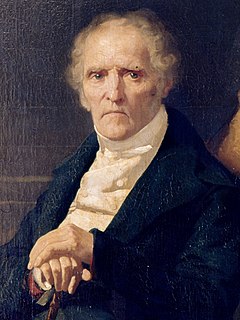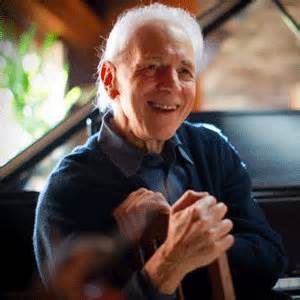A Quote by Charles Fourier
We must, then, apply the principle of Doubt to Civilization; we must doubt its necessity, its excellence, and its permanence.
Quote Topics
Related Quotes
Do you call it doubting to write down on a piece of paper that you doubt? If so, doubt has nothing to do with any serious business. But do not make believe; if pedantry has not eaten all the reality out of you, recognize, as you must, that there is much that you do not doubt, in the least. Now that which you do not at all doubt, you must and do regard as infallible, absolute truth.
We must be fully committed, but we must also be aware at the same time that we might possibly be wrong. People who claim to be absolutely convinced that their stand is the only right one...is a dead giveaway of unconscious doubt. Commitment is healthiest when it is not without doubt, but in spite of doubt.
The starting-point and chief principle of every science, and hence of theology also, is not only methodical doubt, but positive doubt. One can believe only what one has perceived to be true from reasonable grounds, and consequently one must have the courage to continue doubting until one has found reliable grounds to satisfy the reason.
There are many different kinds of doubt. When we doubt the future, we call it worry. When doubt other people we call is suspicion. When we doubt ourselves we call it inferiority. When we doubt God we call it unbelief. When we doubt what we hear on television we call it intelligence! When we doubt everything we call it cynicism or skepticism.
It is not difficult to deprive the great majority of independent thought. But the minority who will retain an inclination to criticize must also be silenced....Public criticism or even expressions of doubt must be suppressed because they tend to weaken pubic support....When the doubt or fear expressed concerns not the success of a particular enterprise but of the whole social plan, it must be treated even more as sabotage.
He must also know evil, hate and bigotry as real phenomena, but he must see love as the greater force. He must not doubt this even for a moment or he is lost. His only salvation is to dedicate himself to love, in the same fashion as Gandhi did to militant nonviolence, as Socrates to truth, as Jesus did to love and as More did to integrity. Only then will he have the strength to combat the forces of doubt, confusion and contradiction. He can depend upon no on or no thing for reinforcement and assurance but himself.
Absurdism, like methodical doubt, has wiped the slate clean. It leaves us in a blind alley. But, like methodical doubt, it can, by returning upon itself, open up a new field of investigation, and in the process of reasoning then pursues the same course. I proclaim that I believe in nothing and that everything is absurd, but I cannot doubt the validity of my proclamation and I must at least believe in my protest.
When we play music we describe the echo the tableau of natural forms, their shapes and arrangements, as uncovered by the composer's imagination, which yet must be filtered through our own. There is no other way. And in acknowledging this tableau, this revelation, we must "hesitate", we must doubt, as the composer doubted, for no valid creation can issue unscarred by doubt, by that vast flux of wonder which precedes the construction of being.
Take faith, for example. For many people in our world, the opposite of faith is doubt. The goal, then, within this understanding, is to eliminate doubt. But faith and doubt aren't opposites. Doubt is often a sign that your faith has a pulse, that it's alive and well and exploring and searching. Faith and doubt aren't opposites, they are, it turns out, excellent dance partners.








































